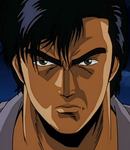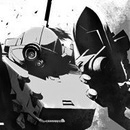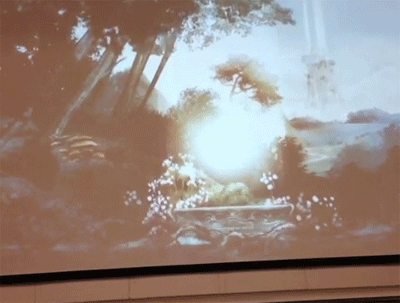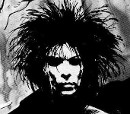Jeux-vidéos !!! Tu le crois ça ?? AHL © 1983
Modérateurs : Aer, Equipe forum MATA-WEB
Jeux vidéo : Amis des pixels ou de la Next generation bienvenues !
-

Afloplouf - Apprenti Kirin
- Messages: 1011
- Inscription: Lun 12 Avr 2010, 13:24
Toujours oui, c'est pas Noël. Et même si la société fait faillite, sans rachat donc, ses propriétés intellectuelles ne tombent pas dans le domaine public comme par magie.
-

Ramior - VIP : ***
- Messages: 3375
- Inscription: Mer 13 Juin 2012, 14:07
Je suis récemment tomber sur un boite contenant de vieux jeux Game Boy et PS2 :
Parmis les jeux GB il y a Probotector, Amazing Spider-man, Xenon 2 et Double Dragon 3 et c'est qu'on se rend compte que les jeux de l'époque était vachement ardu mais tout de même on s'obstine car ils sont globalement de qualité.
Sur PS2 j'ai retrouver un vieux jeux auquel je voulais rejouer "Ultimate Spider-man" de l'époque de Cel shading, malgrés une utilisation de la toile assez hasardeuse c'est un plaisir de jouer les monte en l'air qui aide la veuve et l'orphelin dans une New York gigantesque.
Sinon parmi les jeux GB j’ai aussi retrouver mes jeux Pokémon 1 er génération sauf pour Pokémon cristal qui semble avoir un bug vu qu'il ne sauve pas ce qui rend le jeux injouable; quelqu'un aurait une solution ?
Parmis les jeux GB il y a Probotector, Amazing Spider-man, Xenon 2 et Double Dragon 3 et c'est qu'on se rend compte que les jeux de l'époque était vachement ardu mais tout de même on s'obstine car ils sont globalement de qualité.
Sur PS2 j'ai retrouver un vieux jeux auquel je voulais rejouer "Ultimate Spider-man" de l'époque de Cel shading, malgrés une utilisation de la toile assez hasardeuse c'est un plaisir de jouer les monte en l'air qui aide la veuve et l'orphelin dans une New York gigantesque.
Sinon parmi les jeux GB j’ai aussi retrouver mes jeux Pokémon 1 er génération sauf pour Pokémon cristal qui semble avoir un bug vu qu'il ne sauve pas ce qui rend le jeux injouable; quelqu'un aurait une solution ?
-

Tetho - Rédac : Crest of "Z's"
- Messages: 19770
- Inscription: Ven 06 Avr 2007, 17:44
C'est pas un bug, c'est la pile qui alimente la sauvegarde qui est morte. Ça se change.
Achieve your mission with all your might.
Despair not till your last breath.
Make your death count.
Despair not till your last breath.
Make your death count.
-

Ramior - VIP : ***
- Messages: 3375
- Inscription: Mer 13 Juin 2012, 14:07
Merci et c'est facilement réparable ?
-

Tetho - Rédac : Crest of "Z's"
- Messages: 19770
- Inscription: Ven 06 Avr 2007, 17:44
Oui et non. Rien de bien sorcier mais ça demande un fer à souder, et surtout un tourne-vis Nintendo capable de dévisser les vis spéciales utilisé par Big N pour nous empêcher de désosser nos consoles et nos jeux.
Google te trouveras plus de tutoriaux que tu n'en a décemment besoin.
Google te trouveras plus de tutoriaux que tu n'en a décemment besoin.
Achieve your mission with all your might.
Despair not till your last breath.
Make your death count.
Despair not till your last breath.
Make your death count.
-

Ramior - VIP : ***
- Messages: 3375
- Inscription: Mer 13 Juin 2012, 14:07
Et dans des magasin spécialisé, je pourrais pas trouver de réparateur ? 
-

Ialda - Modo : bodacious kunoichi otaku
- Messages: 19661
- Inscription: Sam 31 Mar 2007, 13:25
- Localisation: Kamurochô
La démo de Europa Universalis IV, le jeu des sales connards intello, est disponible sur Steam :
http://store.steampowered.com/app/23685 ... 1_7_15__13
http://store.steampowered.com/app/23685 ... 1_7_15__13
EDIT: Portugal, Venice, Austria and The Ottomans are playable at the moment, as well as the tutorials, and the start date is 1492.
-

Ialda - Modo : bodacious kunoichi otaku
- Messages: 19661
- Inscription: Sam 31 Mar 2007, 13:25
- Localisation: Kamurochô
CNN sur l'orientation PC de Sega :
http://tech.fortune.cnn.com/2013/08/08/ ... ame-maker/
Now Sega (SGAMY) is undergoing another revamp. After years of developing its franchises, including the still-popular Sonic the Hedgehog, across all platforms, the company is targeting the global PC games market. Sega has been investing more heavily in the PC gaming space of late. The company recently acquired Relic Entertainment and its World War II-based real-time strategy (RTS) franchise, Company of Heroes. Sega published Company of Heroes 2 on June 25.
On September 3, Sega will publish the ninth installment in the Creative Assembly's bestselling RTS franchise, Total War: Rome II. The series has sold over 7 million copies worldwide and has remained a critical favorite with the discriminating PC gaming press. The Total War franchise has sold over 3.4 million copies in the U.S. according to video game tracker NPD Group, and Total War: Rome has a U.S. installed base of 876,000. Sega plans on capitalizing on the global market this fall. According to Rob Bartholomew, brand director at the Creative Assembly, Total War: Rome II has the biggest marketing budget in Total War history.
"Total War: Rome II outscales any previous war game we've ever made before," said Mike Simpson, studio director at the Creative Assembly. "Our budget for this game was 40% larger than we had for Shogun 2. The gameplay campaign, itself, is around four times the size of Shogun 2's campaign. The game has 700 battlefield units for players to use and nine playable factions to command with different cultures, weapons, and tactics. It's an undertaking of a completely different step."
Three of Sega's core game pillars (Company of Heroes, Total War, and Football Manager) are PC-based, and Sega owns the developers (Relic, Creative Assembly, and Sports Interactive) behind these franchises. "PC is a very important part of our business," said John Cheng, President of Sega of America. "Total War sold 2 million units last year without a tent pole release and the upcoming Rome II had over six times the number of pre-orders in its first official week compared to Shogun 2, making it the fastest selling pre-ordered title in the series." He added that Football Manager 2013 became the fastest-selling game in the history of the bestselling annual franchise, passing one million Steam activations in May of 2013 (reaching that milestone almost five months earlier than its predecessor).
Jesse Divnich, vice president of Insights at video game research firm EEDAR, believes Sega's focus in the PC space is a wise strategy because the market is smaller, but also less crowded with competitors, and overall presents a better opportunity for Sega. "With the launch of the next-generation home consoles, we'll see a lot of focus shift away from core PC gaming from the major publishers, which will leave a lot of room for Sega to make some moves," said Divnich. "When the PlayStation 3 and Xbox 360 launched in 2005 and 2006, many thought the PC gaming industry was on its last leg. They were wrong."
Video game research firm Newzoo has forecast that globally more money will be spent on games played on the PC screen than on the TV screen as the game industry transitions to next-generation consoles. According to Peter Warman, founder of Newzoo, game revenues generated through PCs represent 39.2% ($27.6 billion) of the global market this year vs. 36.7% ($25.4 billion) for the TV screen. Market segments that make up the PC revenues are online social and casual gaming, massively multiplayer online (MMO) games, and PC boxed and downloaded games.
http://tech.fortune.cnn.com/2013/08/08/ ... ame-maker/
-

Mattosai - Nanakiroxxe Cultist
- Messages: 4863
- Inscription: Ven 06 Avr 2007, 23:36
- Localisation: A l'auberge
Valkyria Chronicles Ultimate Edition pour PC (DLC Selvaria et co inclus + divers bonus)
voire un Skies of Arcadia II

voire un Skies of Arcadia II


-

Fenriyl - Ryo versus Massue
- Messages: 609
- Inscription: Ven 30 Juil 2010, 00:16
Mattosai a écrit:Valkyria Chronicles Ultimate Edition pour PC (DLC Selvaria et co inclus + divers bonus)
voire un Skies of Arcadia II
Avec la tendance actuelle des développeurs japonais, ça sera des jeux de cartes sur smartphones.
~ The cruel yet gentle embrace of time will wash everything away... ~
~ Someday, at the promised place... We'll meet again... ~
~ Someday, at the promised place... We'll meet again... ~
-

Mattosai - Nanakiroxxe Cultist
- Messages: 4863
- Inscription: Ven 06 Avr 2007, 23:36
- Localisation: A l'auberge
C'est pas faux. Mais de ce coté là, c'est encore Mobage (et Gree) qui tiennent le haut du panier (bon après ils s'associent de toutes façons avec des éditeurs, me semble que TWEWY viens d'en faire les frais)



-

Ialda - Modo : bodacious kunoichi otaku
- Messages: 19661
- Inscription: Sam 31 Mar 2007, 13:25
- Localisation: Kamurochô
Fenriyl a écrit:Avec la tendance actuelle des développeurs japonais, ça sera des jeux de cartes sur smartphones.
Pour avoir testé la prod Gree, les qualifier de 'jeux' est encore bien gentil.
-

Zêta Amrith - Kwisatz Haderach
- Messages: 10779
- Inscription: Dim 08 Avr 2007, 23:14
Nous n'oublierons jamais la Dreamcast.
Polygon a traduit un bref article de Famitsu à propos de la fin de l'ultime console de SEGA.
Polygon a traduit un bref article de Famitsu à propos de la fin de l'ultime console de SEGA.
Tadashi Takezaki, these days, works at Sega in the position of "head of project implementation department, president's office," which doesn't describe very well the things he's been involved with since joining up in 1993. A veteran of Sega's marketing and PR department in Japan, Takezaki was involved with the launch of both the Saturn and Dreamcast — Sega's final two home game consoles. He was also the man who wrote an emotional online message "to all Sega supporters" in January 31, 2001 to announce that Sega was halting Dreamcast production and becoming a third-party software company.
That certainly wasn't the plan back in 1998, when Sega launched a new system that did its best to learn from previous mistakes. "When we developed the hardware, we looked over the mistakes we made with the Saturn and completely reworked our approach," Takezaki recalled in an interview with Famitsu magazine published this week. "Developing for the Saturn and its two CPUs was difficult enough in itself, but the development environment was also chided for being too lacking. So we fully fleshed out our libraries to make development easier. Even today, the Dreamcast gets a lot of praise for its dev environment."
The Dreamcast was more than dev-friendly, though — it was also casual-friendly, going completely away from the hardcore gamer-oriented trend they established with the 16-bit Genesis and 32-bit Saturn. "We did our best to make the console approachable to a mass audience," Takezaki said, "from the system's design and coloring to the name itself. As a result, we went with a compact, simple design with a warm color scheme, something completely different in look from older Sega systems. I think it was the console that we took the most complete marketing approach with."
So why did the system fail ? "In essence, it was a pure matter of cost," replied Takezaki. "It was because we were forced into a discount war when we were already losing money on system sales. Sony [whose PlayStation 2 came out March 2000 in Japan] was part of the team that developed the DVD standard, and they could develop a system around that completely internally with their own chips. Sega, meanwhile, was buying everything from outside companies, so it was at a distinct cost disadvantage. We couldn't easily cut costs on manufacturing, the software wasn't selling the numbers it used to, and then we were forced to discount the system."
It's hard enough to balance hardware costs with profits, but with everything Sega attempted in one go with the Dreamcast, the situation was even more dire than usual. "It's one of those things where the more consoles you sell, the more you lose, so we had to cover that with software sales," Takezaki explained. "But those sales weren't going up, and at the same time, we were busy trying to bring the idea of online gaming to users with the system. Our concept with the Dreamcast was to bring something new to gamers, to build an environment where they could connect with each other from around the world. Sega's whole business model was to build a userbase of cheap network devices, then provide services and products through the Internet; the Dreamcast was our ticket to making that dream come true."
A lot of people in the industry have commented that Sega perhaps pulled the trigger a few years too early with the Dreamcast and its online-centric design. Takezaki doesn't think so. "I think it was the right choice to aim for a net-centric strategy at that time," he said. "However, we went through with it even though our break-even was far too high for it to work. The idea of accessing the net for free at that time was simply fantastic, and we were the ones footing the bill, so in a weird way, Sega was the company paying out the most money for its users at the time."
Looking back, Takezaki sees the Dreamcast as an incredibly revolutionary system, but one that was probably destined to be Sega's last no matter how sales turned out. "I think the Dreamcast really symbolized the changing of the guard that took place around that time," he explained. "PCs really began to evolve and improve at a dizzying rate beginning then, and it made people begin to wonder if a console tuned exclusively for games had any chance of surviving any longer. Still, our experiments with network gaming led to things like Phantasy Star Online, and lots of people are still enjoying that series. The seeds we sowed with the Dreamcast are finally bearing fruit at this point in time. In some ways we were going by the seat of our pants, but it was part of the Sega credo at the time -- if it's fun, then go for it."
-

Fisico - Ryo versus Massue
- Messages: 909
- Inscription: Ven 30 Juil 2010, 16:22
Mattosai a écrit:C'est pas faux. Mais de ce coté là, c'est encore Mobage (et Gree) qui tiennent le haut du panier (bon après ils s'associent de toutes façons avec des éditeurs, me semble que TWEWY viens d'en faire les frais)
Obligatoire
-

Afloplouf - Apprenti Kirin
- Messages: 1011
- Inscription: Lun 12 Avr 2010, 13:24
Pour ceux qui désespèrent de voir Star Citizen et qui seraient plus tentés par un jeu solo, on rappellera que X: Rebirth sort cet automne. Le studio s'est fendu d'un trailer totalement bandant pour l'occasion.
S'il faut moins de 20h pour commencer à jouer, je me laisserai peut-être tenté.
S'il faut moins de 20h pour commencer à jouer, je me laisserai peut-être tenté.
-

Ialda - Modo : bodacious kunoichi otaku
- Messages: 19661
- Inscription: Sam 31 Mar 2007, 13:25
- Localisation: Kamurochô
Ubisoft mène une politique stimulante en matière de "petits" titres à télécharger ces derniers mois, après le dernier Call of Juarez et le spin-off Far Cry voilà qu'ils annoncent un vanillaware-like intitulé Child of light.


Developed on Rayman Origins' Ubi Art Framework engine and led by Far Cry 3's creative director Patrick Plourde, Child of Light is described as a side-scrolling "fairytale game" that captures the "Squaresoft spirit" of PSOne JRPGs Final Fantasy VIII and Vagrant Story.
-

Aer - Modo : Fan de Bakunyû
- Messages: 10509
- Inscription: Mar 29 Juin 2010, 23:01
- Localisation: Mû
Aflo > Joli, et y'a du progrès technique en plus. En tout cas ils mettent le paquet sur leur vue interne des vaisseaux ahah. Il va être temps de reposer X3 sur l'étagère.
Pardon ? C'est quoi le rapport avec VS ?
Child of Light is described as a side-scrolling "fairytale game" that captures the "Squaresoft spirit" of PSOne JRPGs Final Fantasy VIII and Vagrant Story.
Pardon ? C'est quoi le rapport avec VS ?
When you dont afraid any sunshine, come on baby !
行けよ饒舌の 影よ来て導け
行けよ饒舌の 影よ来て導け
-

Ialda - Modo : bodacious kunoichi otaku
- Messages: 19661
- Inscription: Sam 31 Mar 2007, 13:25
- Localisation: Kamurochô
Peut-être que le héros se baladera lui aussi équipé d'une sorte de croisement improbable entre une paire de shorts et un kilt ? 
-

Aer - Modo : Fan de Bakunyû
- Messages: 10509
- Inscription: Mar 29 Juin 2010, 23:01
- Localisation: Mû
Meilleur pantalon jamais.
When you dont afraid any sunshine, come on baby !
行けよ饒舌の 影よ来て導け
行けよ饒舌の 影よ来て導け
-

Ialda - Modo : bodacious kunoichi otaku
- Messages: 19661
- Inscription: Sam 31 Mar 2007, 13:25
- Localisation: Kamurochô
Hello again, commander.
Pas mal de petits ajouts, de nouvelles ressources, de nouveaux modèles de carte (ils en annoncent une quarantaine je crois ? ça devrais être à peine suffisant).... mais les deux gros nouveaux ajouts devraient être :
Pas mal de petits ajouts, de nouvelles ressources, de nouveaux modèles de carte (ils en annoncent une quarantaine je crois ? ça devrais être à peine suffisant).... mais les deux gros nouveaux ajouts devraient être :
- Gene Mods: Construct the Genetics Lab to physically enhance operatives’ abilities, including augmentations to the chest, brain, eyes, skin and legs.
- MECs: Build the Cybernetics Lab to enable the construction of the new Mechanized Exoskeletal Cybersuit, or MEC. The new MEC Trooper class has specialized abilities and each suit can be upgraded with new weapons including the flamethrower, grenade launcher and more.
-

The Drig Overmind - Piou-Piou
- Messages: 761
- Inscription: Jeu 03 Déc 2009, 17:40
- Localisation: Universal Century 0079
Ialda a écrit:Hello again, commander.
Pas mal de petits ajouts, de nouvelles ressources, de nouveaux modèles de carte (ils en annoncent une quarantaine je crois ? ça devrais être à peine suffisant).... mais les deux gros nouveaux ajouts devraient être :- Gene Mods: Construct the Genetics Lab to physically enhance operatives’ abilities, including augmentations to the chest, brain, eyes, skin and legs.
- MECs: Build the Cybernetics Lab to enable the construction of the new Mechanized Exoskeletal Cybersuit, or MEC. The new MEC Trooper class has specialized abilities and each suit can be upgraded with new weapons including the flamethrower, grenade launcher and more.







GOTY
Mecchas piou-piou is better than Suzumiya pouet-pouet !
MOE CAPTAIN IS MOE !!!
MOE KOUSAKA-CHAN IS MOE !!!
MOE HOSHINO-SEMPAI IS MOE !!!
Space Drig is ... a Drig in the space !!!
MOE CAPTAIN IS MOE !!!
MOE KOUSAKA-CHAN IS MOE !!!
MOE HOSHINO-SEMPAI IS MOE !!!
Space Drig is ... a Drig in the space !!!
-

Ialda - Modo : bodacious kunoichi otaku
- Messages: 19661
- Inscription: Sam 31 Mar 2007, 13:25
- Localisation: Kamurochô
Video de gameplay Amnesia aMfP; le commentateur est über-lourd et la vidéo spoil des effets du jeu - à voir uniquement si vous tenez absolument à avoir un avant-goût du jeu.
-

Deathmes - Ryo versus Massue
- Messages: 931
- Inscription: Ven 11 Mai 2012, 19:49
- Localisation: Nantes
C'est Babe qui fait du BDSM? 

-

Ialda - Modo : bodacious kunoichi otaku
- Messages: 19661
- Inscription: Sam 31 Mar 2007, 13:25
- Localisation: Kamurochô
-

Ialda - Modo : bodacious kunoichi otaku
- Messages: 19661
- Inscription: Sam 31 Mar 2007, 13:25
- Localisation: Kamurochô
Ouch l'avis de Canard PC sur Amnesia :
https://twitter.com/Canardpcredac/statu ... 8818285568
https://twitter.com/Canardpcredac/statu ... 4060424193
PS : le jeu est en préchargement sur Steam pour ceux qui ont déjà craqué.
https://twitter.com/Canardpcredac/statu ... 8818285568
https://twitter.com/Canardpcredac/statu ... 4060424193
PS : le jeu est en préchargement sur Steam pour ceux qui ont déjà craqué.
Qui est en ligne
Utilisateurs parcourant ce forum: Aucun utilisateur enregistré et 4 invités

